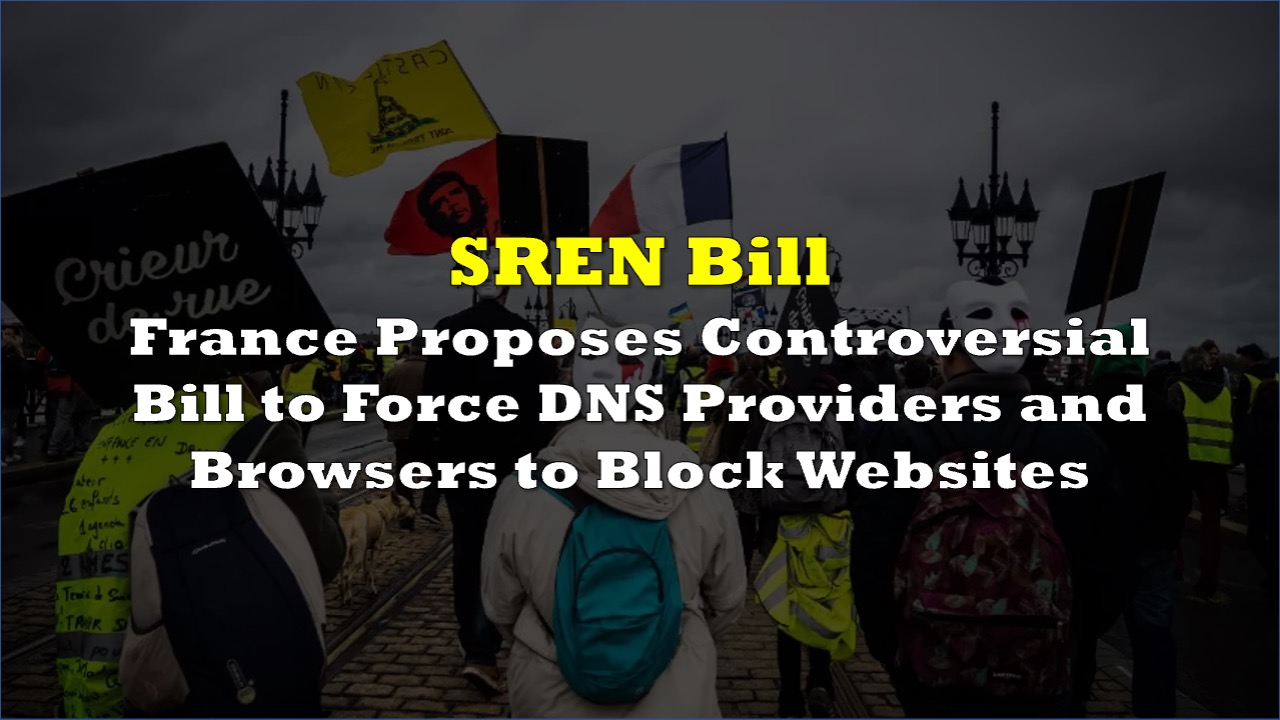France has introduced the SREN Bill in parliament, aiming to address issues such as online fraud, harassment, and minors’ access to explicit content on the internet. However, this proposed legislation has raised concerns among experts who view it as a potential threat to online freedom and privacy.
The SREN Bill, if passed, would grant the French government the authority to compel DNS providers and web browsers to block websites flagged by authorities for alleged infringements. While the bill’s intentions are to combat online fraud, critics argue that it may lead to an unprecedented level of censorship and compromise the open internet.
RELATED: France’s AFP Sues Elon Musk’s Twitter/X for Refusal to Pay For Links Shared on the Platform
Tech company Mozilla, known for its Firefox web browser, expressed strong reservations about the SREN Bill, labeling it a “dangerous move” that could have far-reaching consequences.
In a June blog post, Mozilla warned that giving the French government the power to block websites at the browser level sets a dangerous precedent, making it easier for authoritarian governments to suppress online content they disagree with.
“While motivated by a legitimate concern, this move to block websites directly within the browser would be disastrous for the open internet and disproportionate to the goals of the legal proposal – fighting fraud. It will also set a worrying precedent and create technical capabilities that other regimes will leverage for far more nefarious purposes,” they wrote.
Privacy advocates at Article 19 have voiced concerns over the potential impact on individuals’ data privacy. Compliance with the proposed law could lead browsers to collect more user data, potentially compromising users’ privacy.
The SREN Bill also raises worries about its extraterritorial implications, as it might force browsers to implement blocking measures for users outside of France’s borders. Such measures could significantly infringe on both users’ and content creators’ freedom of expression.
Mehwish Ansari, Head of Digital at ARTICLE 19, emphasized in a statement that the bill undermines freedoms guaranteed by the EU Charter of Fundamental Rights.
“This proposal gives the French government enormous, potentially extraterritorial power to censor websites without any clear judicial oversight or public accountability. This would be a major setback for freedom of expression online and set a dangerous precedent for censorship regimes around the world that are watching carefully,” he warned.
Mozilla and Article 19 are calling on the French government to reconsider these aspects of the SREN Bill and explore alternative, less invasive solutions to address online content issues.
They encourage public awareness and engagement — Mozilla has launched a petition to stop the accelerated parliamentary procedure and urge lawmakers to reevaluate the proposed legislation before voting on it.
Information for this story was found via Mozilla, Article 19, TechRadar, and the sources and companies mentioned. The author has no securities or affiliations related to the organizations discussed. Not a recommendation to buy or sell. Always do additional research and consult a professional before purchasing a security. The author holds no licenses.











